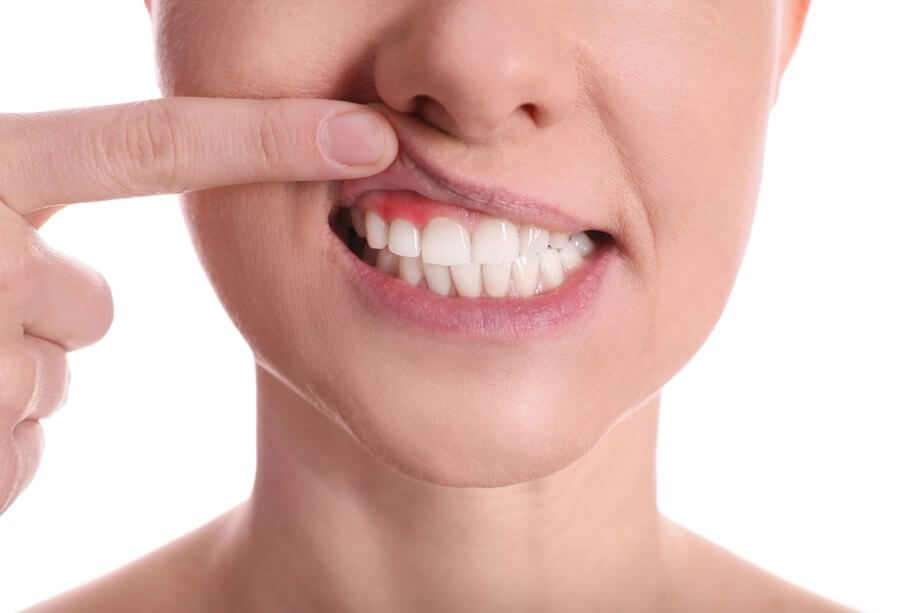Gum disease may start quietly, but it doesn’t stay silent for long. What begins with a little tenderness or bleeding can quickly progress into a serious oral health issue—one that affects not just your gums, but your teeth, bone structure, and even overall health. At our Forty Fort dental office, we’ve seen just how common gum disease is and how often patients dismiss early symptoms until things get worse.
We want our community to be proactive, not reactive. Catching gum disease early gives us the best chance to reverse damage and restore your oral health without invasive treatment. Let’s take a closer look at five of the most important warning signs to watch out for—and what you should do if you notice them.
Bleeding Gums
This is often the first sign that something isn’t right. If you see blood in the sink when you brush or floss, your gums are trying to tell you something. Many people shrug it off, assuming they brushed too hard—but healthy gums don’t bleed. Period.
Bleeding is usually a sign of inflammation caused by plaque buildup beneath the gumline. Left untreated, that inflammation can turn into full-blown periodontal disease, leading to gum recession, bone loss, and eventually tooth loss. If bleeding gums have become a regular occurrence, it’s time to come see us.
Chronic Bad Breath
We’re not talking about garlic from lunch—we mean persistent bad breath that doesn’t go away no matter how much you brush, rinse, or chew gum. This condition, known as halitosis, is often caused by bacteria hiding in pockets between the teeth and gums.
Those bacteria don’t just smell bad—they’re actively attacking the structures that support your teeth. When plaque and tartar aren’t removed regularly, they create an environment where harmful bacteria thrive. A professional cleaning and possibly other periodontal procedures may be necessary to treat the underlying infection and eliminate the odor.
Gum Recession
Have your teeth started looking longer than they used to? That might not be your imagination. Receding gums expose more of the tooth’s surface—and in more severe cases, even the root. Gum recession can cause sensitivity, increase your risk of cavities, and weaken your teeth’s support system.
This symptom often develops gradually, so it’s easy to miss. That’s why routine checkups are so important. If we catch gum recession early, we can help you manage it and prevent it from progressing. In advanced cases, we may recommend treatments like scaling and root planing or soft tissue grafting to repair the damage.
A Changing Smile or Bite
Gum disease doesn’t just affect your gums—it can also change the way your teeth fit together. If your bite feels off, or if your teeth suddenly look like they’re shifting or drifting apart, there may be something going on below the surface.
Bone loss caused by periodontitis can cause teeth to loosen or even fall out. These changes are serious and require immediate attention. We’ll evaluate the extent of the damage and discuss treatment options to stabilize your teeth and preserve your natural smile.
Loose or Sensitive Teeth
Tooth sensitivity is another red flag, especially if it comes on suddenly or affects multiple teeth. If hot, cold, or sweet foods make you wince, your gum tissue could be pulling away from your teeth—exposing nerve-rich areas and increasing discomfort.
Loose teeth are a more advanced symptom and should never be ignored. This means the supporting bone structure has been compromised. Fortunately, with prompt and appropriate care, we can often intervene before things reach the point of no return.
Your Gums Deserve Attention Too
We get it—when it comes to oral health, most people focus on their teeth. But your gums are just as important. They provide the foundation for a healthy smile, and keeping them in good shape can help you avoid painful, costly complications down the line.
If you’ve noticed any of these signs of gum disease, don’t wait for them to get worse. The earlier we catch the problem, the easier it is to treat. At our Forty Fort office, we offer advanced periodontal care that’s tailored to your needs. We’re here to help you protect your gums, your smile, and your health—one visit at a time.
Frequently Asked Questions About Periodontal Procedures
What happens during a periodontal procedure?
That depends on the severity of the gum disease. Common procedures include scaling and root planing (a deep cleaning to remove plaque and tartar under the gumline), gum grafting to restore lost tissue, and pocket reduction surgery to eliminate bacteria-trapping areas. We’ll perform a thorough evaluation and explain the best approach for your specific case.
Is periodontal treatment painful?
Most periodontal treatments are done with local anesthesia to minimize discomfort. Some procedures may cause mild soreness afterward, but we’ll give you tips and medication options to manage any post-treatment sensitivity. Our priority is making sure you’re comfortable every step of the way.
At Dr. Todd Paczewski’s office, we believe that everyone in Forty Fort and the surrounding communities deserves healthy teeth and gums for life. We offer advanced general and periodontal care in a welcoming environment. Contact us to schedule an appointment or learn more about how we can help you prevent and treat gum disease.
